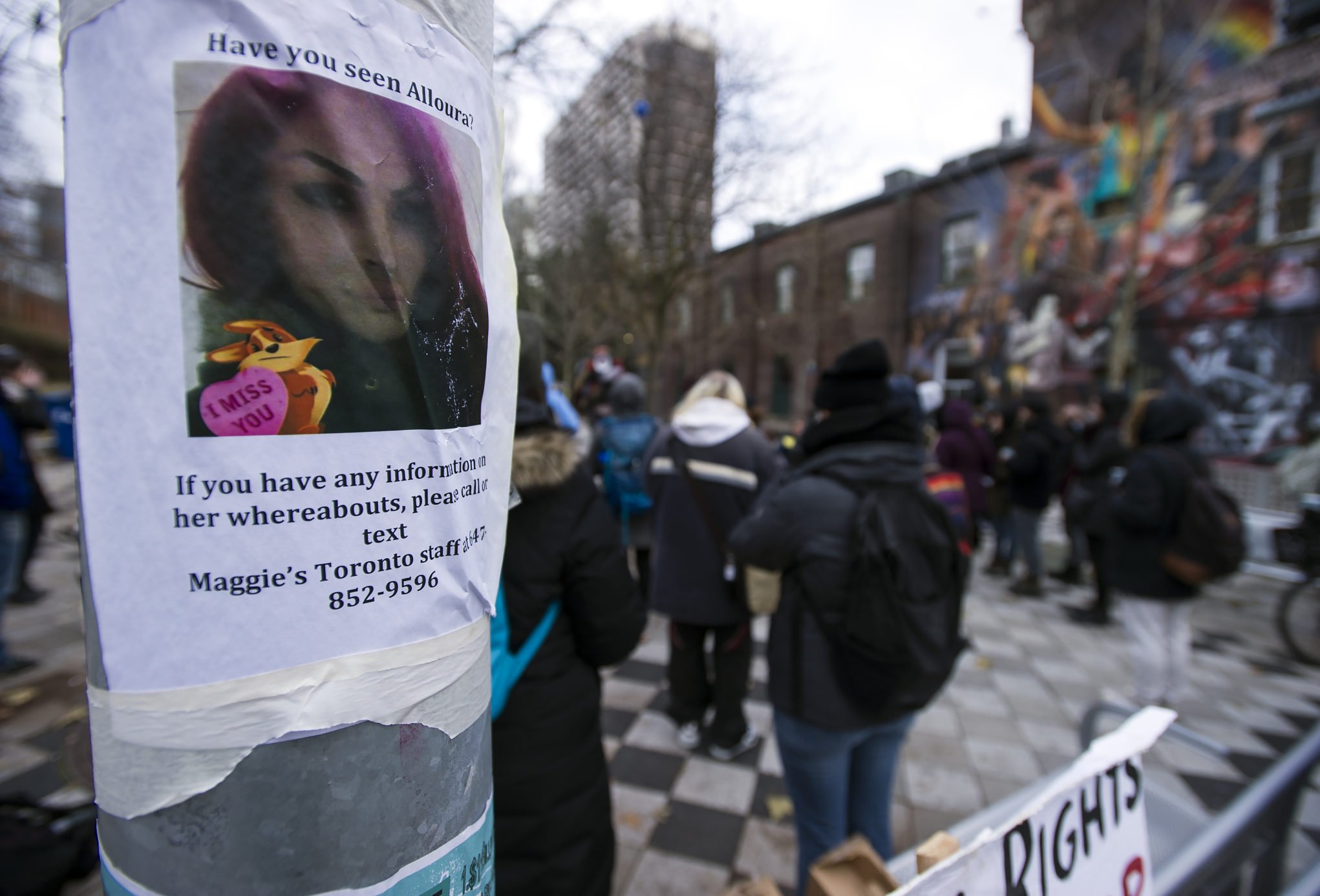On a cold December afternoon, dozens of people gathered at Sanctuary Toronto to do something that Toronto’s trans community has gotten much too used to — mourn.
A slanted wooden cross, which looked like it could have been made of plywood, sat at the front next to a fully-decorated Christmas tree, a silver star perched on top. There were no pews — instead chairs had been arranged in a large semi-circle.
Alloura Wells has been dead since July, but it’s only now that her body has been identified that her friends and family can say goodbye.
Dozens of people streamed into the room as the smell of sage wafted through the air. A few TV cameras were set up in the back and reporters from a variety of publications sat on the edges. There have been a number of funerals and memorial services for young trans people in Toronto over the past year, but it’s rare that media attend.
With Wells, because of the circumstances of her disappearance and her death, it’s different.
Her body had been found in the Rosedale Ravine in August, but the police didn’t connect it to her until months later, when her friends and family organized searches and got her onto the news.
“Many of us gathered here are angry,” said Reverend Evan Smith. “Angry that she was taken away too soon. Angry that we don’t know what happened to her. Angry that a community wasn’t taken seriously.”
Monica Forrester, a program coordinator at Maggie’s who helped lead the efforts to find Wells, said that she was the sixth trans woman she knew who died this year.
“It just saddens me that this is happening so much,” she said, choking back tears.
But while the anger was palpable in the room, most people wanted to talk about the kind of person Alloura was: funny, talented, a little vain, but always trying to find her place in the world.

Dozens of people gathered to pay tribute to Alloura Wells on Dec 12, 2017, at Sanctuaries Toronto. Credit: Arshy Mann/Xtra
“I actually knew Alloura since elementary school,” one old friend said. “She always had a certain kind of a flair, even just as a kid.”
Another person remembered having drinks with her when she had moved to downtown Toronto, as she was trying to figure out who she wanted to be.
“When you see all the different hair colours that she wears, it’s because I always told her, change into different wigs until you figure out who you are,” they said. “At least she realized who she was at the end.”
But it was her father, Mike Wells, who had the most to say.
“Alloura was my son, she turned into my daughter,” he said. “And that was all cool.”
She could be precocious; she once got caught stealing chocolate bars for some friends of hers.
He remembered when she was came out to him at 18 or 19. He could sense that something was wrong, and he was worried about what she would say.
She said, “Dad, I don’t want you to not love me” and then told him she wanted to be a woman.
“And I just looked at him and sucked my teeth and said, ‘That’s it? You put me through all this for that?’”
Alloura changed her father’s attitudes. He used to be homophobic. But when his daughter found Toronto’s trans community, he also quickly became immersed.
“When she came home, she brought her other friends, they were all transgender,” he said. “And all those kids, they were our kids after that. They could come to our house, eat, sleep, do whatever. They were a hell of a lot cleaner than she was.”
But when his wife died four years ago, Mike could tell it devastated his daughter. It had been rough for her ever since.
Mike had a discussion with Toronto police chief Mark Saunders, who he artfully referred to as the “chief of dicks.”
“So they asked me, what can be changed,” he said. “And I said, you need to embrace this community. It’s full of love, compassion.”
Mike doesn’t say everything properly — he knows he’s not a politically correct kind of guy.
“But I try. I try for Alloura. When we were alone home together, it was always Malcolm. He was cool. He understood. But when we were with his friends and such, she was Alloura. I respect his decisions.”
But he loves his daughter.
“She was born perfect,” he says.

 Why you can trust Xtra
Why you can trust Xtra


